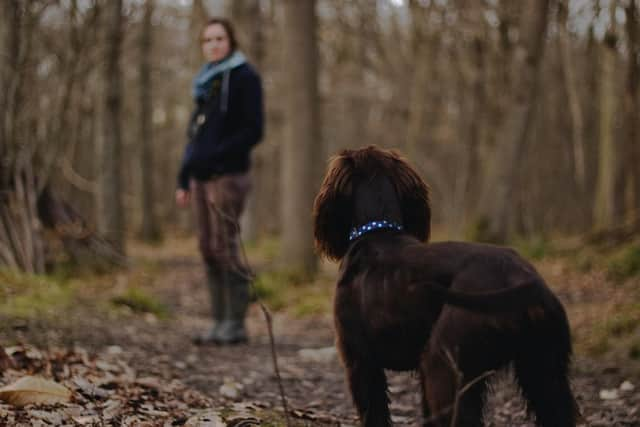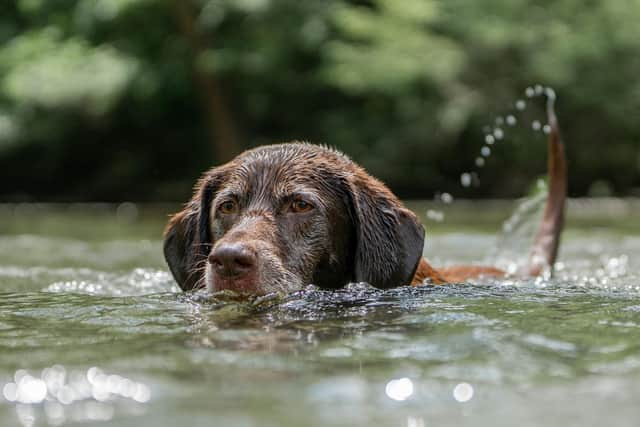K9 Search and Rescue dogs among those believed to be poisoned during trip to Hillsborough Forest Park
and live on Freeview channel 276
Among the dogs affected are three from the volunteer K9 Search and Rescue team, which specialises in providing searches for vulnerable and injured people all over Northern Ireland.
The all-volunteer organisation received high praise for its lifesaving work in Turkey following the devastating earthquake earlier this year.
Advertisement
Hide AdAdvertisement
Hide Ad“Three of our dogs are currently in the vets receiving emergency care after eating items left out in Hillsborough Forest Park,” a spokesperson for K9 Search and Rescue said on Friday evening.


"Search dog Betsy along with trainee search Dogs Koda and Rocko are receiving the very best of care and their handlers are with them. Three family pets are also affected.
"It may be an idea to avoid the park for now, or keep your dogs on a lead.”
It has been suggested that items that can be toxic to dogs, including grapes and chocolate, had been left throughout the forest park.
Advertisement
Hide AdAdvertisement
Hide AdAn online fundraising page has been set up to help with veterinary costs.


Fund organiser James Mcmordie said: “We hope to help raise funds to cover at least some of the veterinary bill related to this incident as dog lovers and dog handlers they should not have to face this alone.”
The heartbreaking incident came after a renewed warning this week for pet owners to be aware of the dangers of blue-green algae when out and about with their dogs after the substance was confirmed at Castlerock beach.
The public are being urged to remain vigilant when near all open water areas and take extra care if visiting the north coast particularly the Portstewart / Castlerock area
Advertisement
Hide AdAdvertisement
Hide AdThe British Veterinary Association (BVA) explained that blue-green algae, or cyanobacteria, is a group of bacteria that can contain dangerous toxins which can be harmful and potentially fatal to pets, livestock and birds if ingested even in small quantities.
The algae may appear as green or greenish-brown scum on the surface of water like lakes and ponds. Dogs can swallow it by drinking water from an affected lake, river or pond or while licking their fur after going for a swim. It’s also possible for dogs to come into contact with it even if they don’t go for a paddle, as toxic blooms may be blown to the edges of water bodies.
BVA President Malcolm Morley said: “Lots of dogs love water and won’t hesitate to dive straight in when they see a lake or go for a paddle in a pond. But toxic blue-green algae is very difficult to identify and, if ingested, can make dogs seriously unwell – and can even be fatal.
"We’re urging pet owners to keep their dogs on leads near water bodies where blue-green algae has been confirmed or, if unsure if a water body is safe, to keep them away from it completely. It may seem a shame to spoil your dog's fun, particularly if they are used to swimming somewhere, but if you are unsure it is safe, it is not worth the risk.
Advertisement
Hide AdAdvertisement
Hide Ad"Being aware of the symptoms of exposure is also vital as there is no known antidote for the toxins and prompt treatment is critical to help give a chance of recovery. Symptoms can appear within a few minutes or hours of exposure, and commonly include vomiting, diarrhoea, drooling, disorientation, trouble breathing, seizures, and blood in faeces. If you have any concerns or are worried your pet may have had contact with blue-green algae, speak to your vet as soon as you can.”
